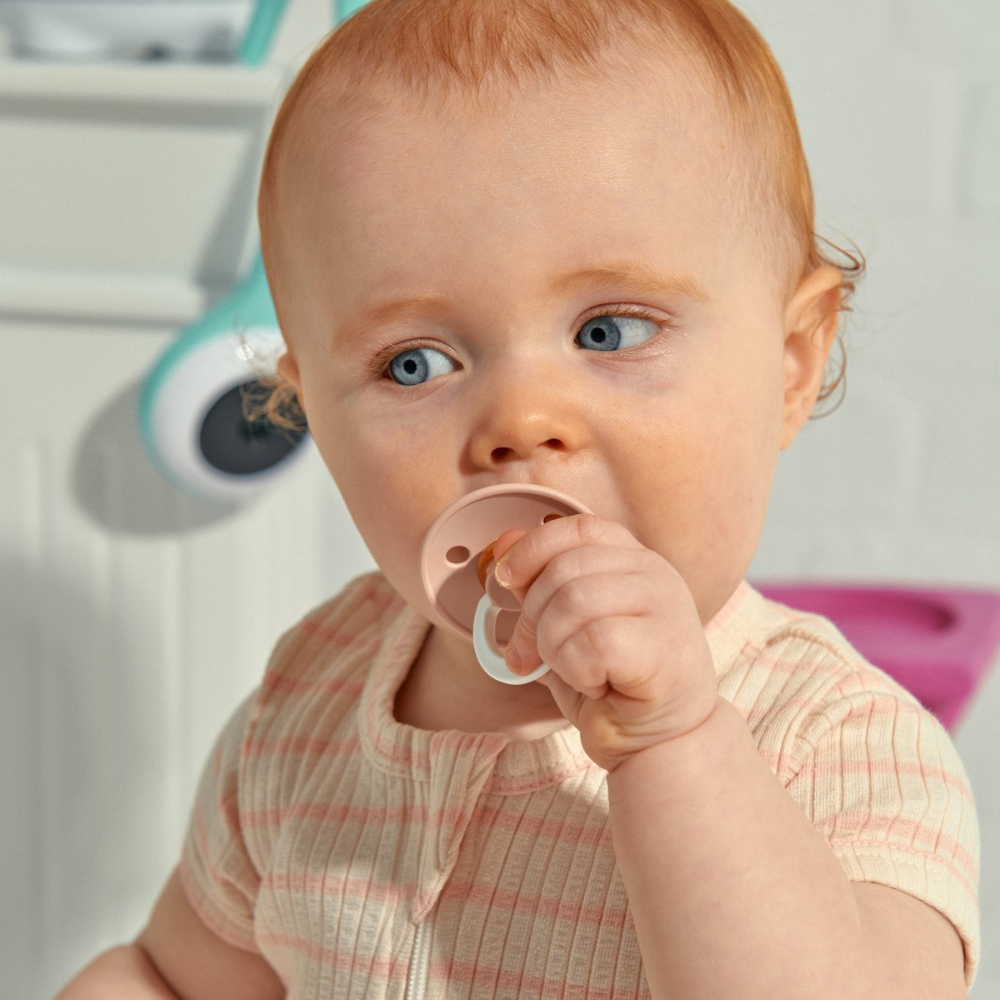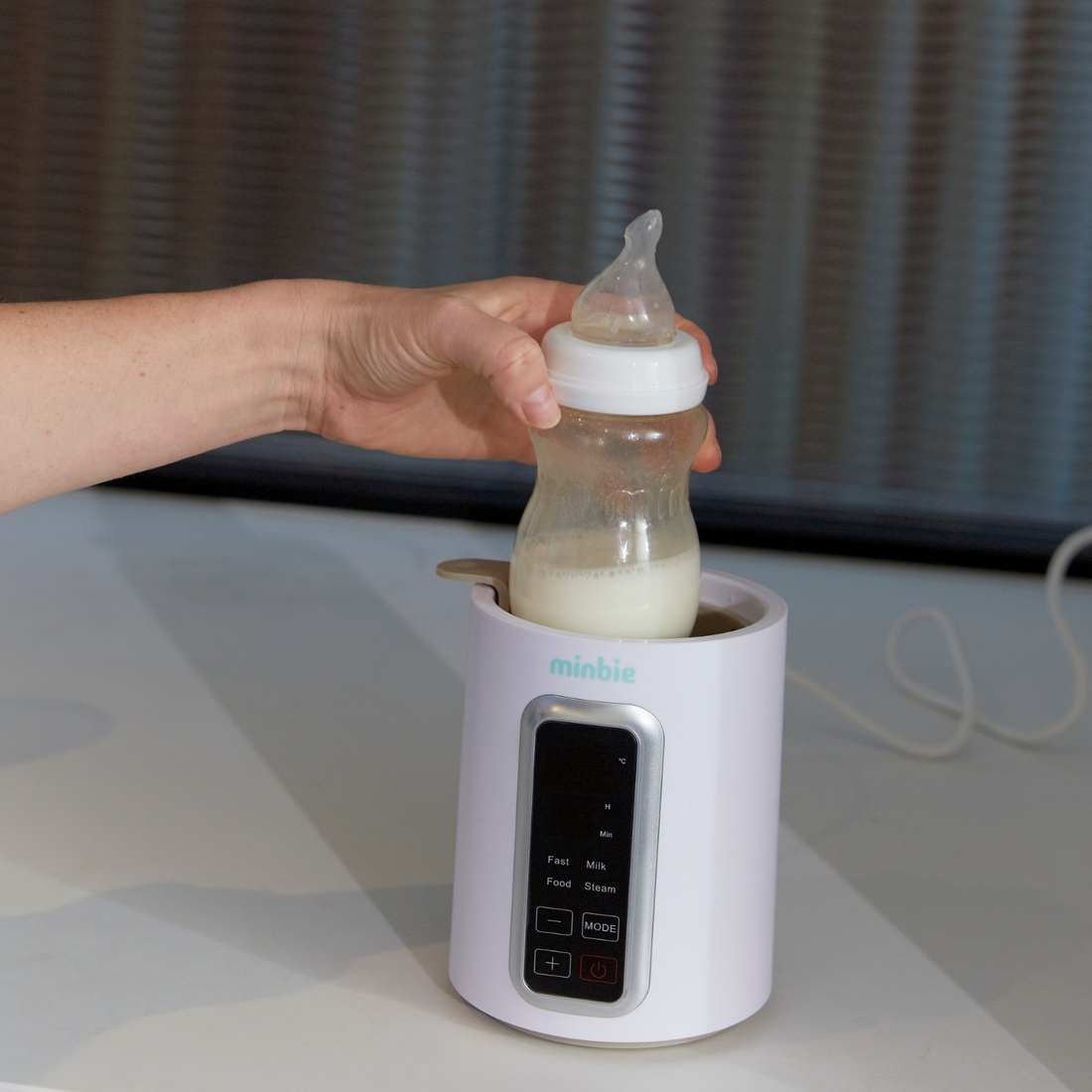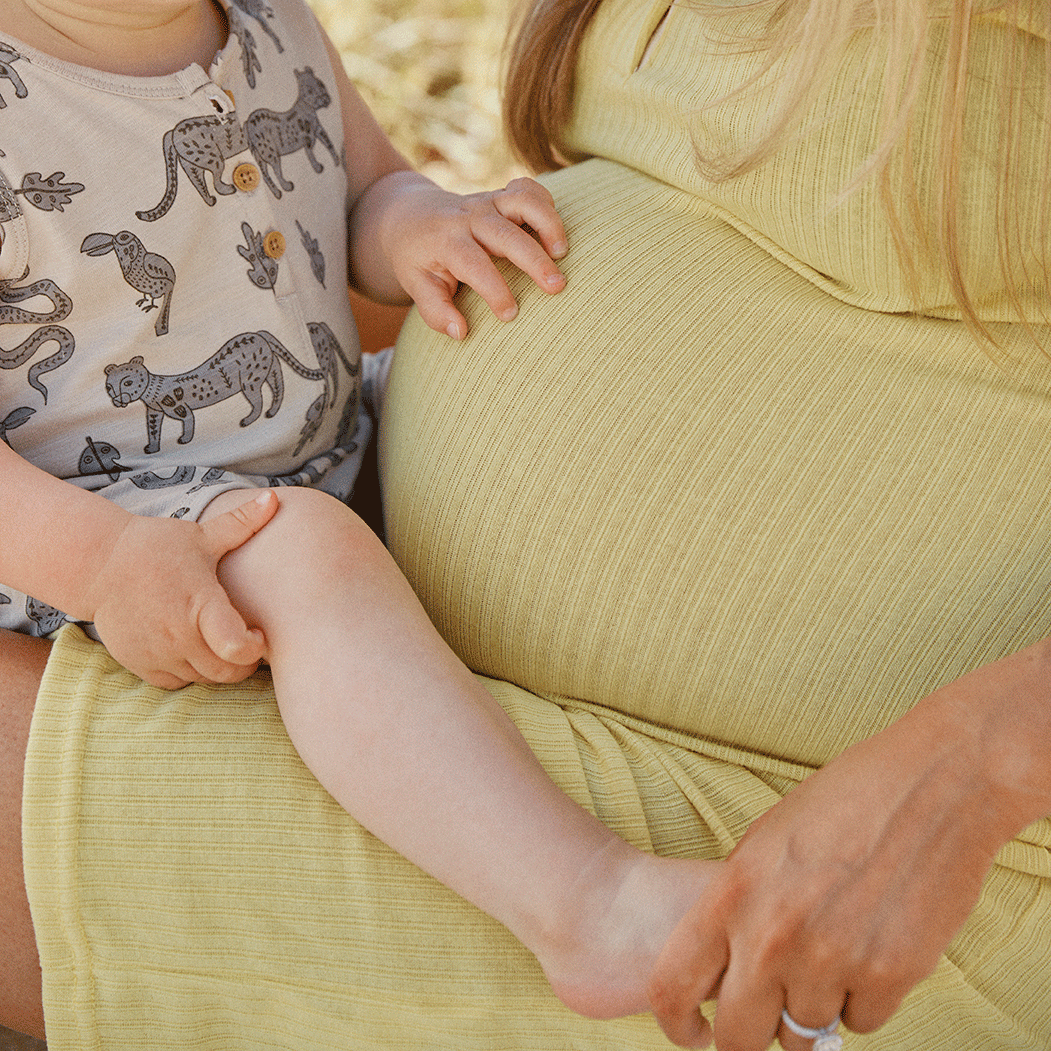

A researched-backed look at using pacifiers.
Of all the facts and information I've been told in my lifetime, "dummies are bad for your teeth" is something that stuck. It was one of the few things I thought I knew about babies, and it wasn't until I was trying to settle a newborn, for which the dummy was working wonders, and realised I was feeling guilty about my baby's teeth, when I realised, he didn't have teeth. What exactly was the I worried about? As a paediatrician, Dr Golly, author of Your Baby Doesn't Come With a Book says dummies or pacifiers are one of the top things he's asked about. "The fact is for some babies they can really help with sleep and settling. I encourage parents to arm themselves with all the information before they start to use one." Adding that "While dummies have a few cons, used appropriately there are also a lot of pros and if you have a baby that sucks on anything, a dummy is a far better option than their thumb or your boob!" Ahead, some dummy myth busting, and what you do need to know about using a pacifier.
Babies like to suck
It's actually a survival reflex babies have before they are even born. You may have even seen them in an ultrasound, thumb in mouth, happily hanging in their foetal splender. In the first few weeks Earth-side, sucking and bringing their hands to their mouth are feeding cues. Beyond the first few weeks, after breastfeeding is established, these actions are something your baby does to comfort themselves. A full will want to suck, not because they are hungry, but to help soothe themselves to sleep. Their options of sucking: their fist, your finger, a bottle (but they aren't hungry), your boob (again, they aren't hungry, so this is sucking for comfort)... a pacifier is the best option in this scenario. The urge to suck doesn't disappear, but it does change from a reflex to what's called "voluntary sucking" between two and four months of age.
Dummies, or pacifiers, do 'pacify'
The core reason to use a pacifier is to, well, pacify (calm them, have them cry less) an upset or unsettled baby. The "soothing" value of a dummy is well established with randomized trial evidence and a lot of experience supporting the fact. If "does it work" were the only consideration with pacifiers, the parental stress around them would be much less, because simply, they do.
Nipple confusion and breastmilk supply
It has long been thought that dummies cause nipple confusion and can interfere with milk supply. For this reason, if you are breastfeeding, it's recommended to limit dummy use in the first 4-6 weeks of life. However, it is important to note that there is simply no evidence to suggest that if introduced and used correctly (to soothe when full and tired, cranky or fussy) that using a dummy could impact breastfeeding. In Cribsheet Emily Oster does a deep dive into the results of randomized trials to find that while there is a correlation; infants who use dummies are less likely to breastfed, it is not the cause of them not breastfeeding. More likely, people who bottle feed are told they can introduce a dummy from birth if they wish, so many do, while breastfeeding parents are told it can affect their feeding, so they don't. One study of breastfeeding and pacifier use is this one which included 281 women in Quebec, randomized into either discouraging or not discouraging pacifier use. The researchers found that pacifier use was less common when it was discouraged but that there was no difference in breastfeeding rates. Osters conclusion on the matter: "Pacifiers do not cause nipple confusion or interfere with breastfeeding. They don’t! Stop worrying about this!"
Dental issues
There is evidence that excessive thumb sucking or dummy use can lead to dental problems including buck teeth, excessive overjet and posterior crossbite, however this doesn't happen until between the ages 2-4, but especially between 4-5. Therefore, it is recommended that children stop using dummies after the age of two because of the potential impact on their teeth. "This isn’t meant to be alarmist though," says Golly. "There are plenty of perfectly healthy and happy kids who had a dummy and sucked their thumb a bit but if it’s excessive you need to aware of the possible impact and the possible orthodontic bills you may face."
Dummies and sleep
Dummies can become party of a baby's sleep routine, giving them the cue that it's time to sleep and helping them settle for their nap. They can interfere with sleep if losing it in the night causes the baby to wake and the parent with them to replace it. Babies can't learn to find and replace their pacifier until they are 7 months old, so if broken sleep is a problem for your baby and family, and they are under 4-5 months then it's wise to stop using it. If your baby is over 7 months and only sometimes waking to find their dummy, and you're happy for them to keep using it, glow-in-the-dark options or multiple dummies in the bed with them is another way to resolve the issue.
Ditching the toddler dummy
Children naturally lose interest in their dummies as they get older, like they do with everything. It is smart for parents to guide the process (not encouraging use if they are becoming disinterested or finding different ways to comfort them) so it doesn't become a hard habit to break them from down the track.
When dummies are a problem
If dummies are being used all the time (not just to settle for bed) there may be more cause for concern. "If a highly fussy baby is using a dummy to sooth very frequently then I worry that something is being missed," says Dr Golly. "I never want a dummy to be used to soothe a baby with a treatable condition, like colic."
Keeping dummies hygienic
Dummies should be washed and steralised regularly, like a bottle. They also need to be replaced roughly every six weeks (depending on the material) and disposed of if damaged.
Like using formula, returning to work, not "bouncing back" and all the other ridiculous things parents (particularly mothers) have historically been made to feel guilty or judged over, dummies can be added to the list of information over perception. There are many possible advantages to dummies for soothing and creating good sleep practices. You know what's works for you, your baby and your family, having the information is the only thing that really matters.










































































